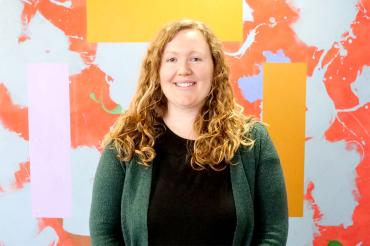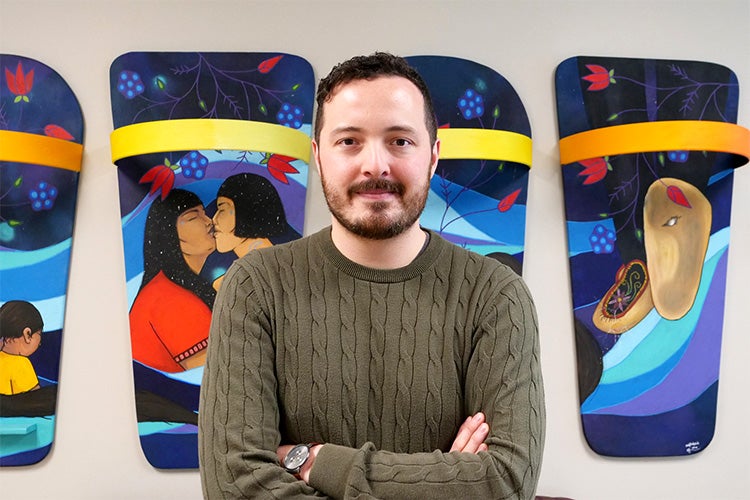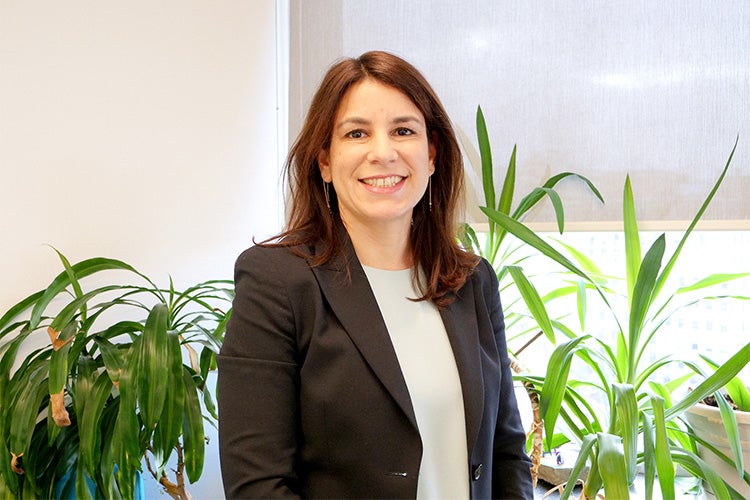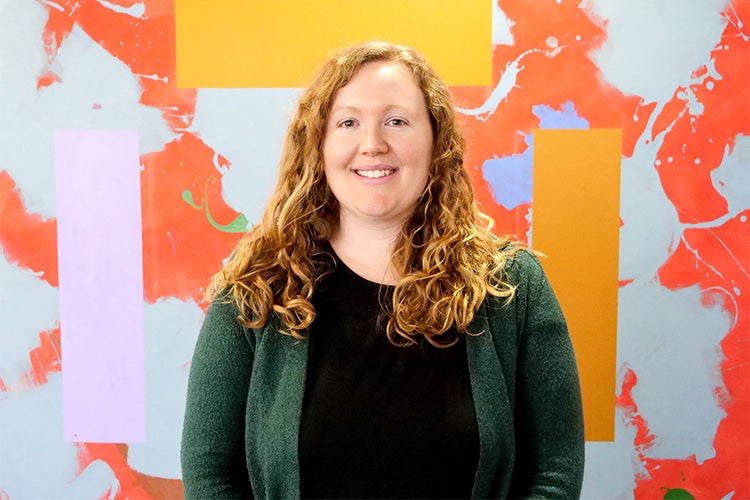Researchers at the University of Toronto’s Ontario Institute for Studies in Education are playing a leading role in addressing the unique mental health challenges that young people face in today’s world.
From shedding light on how parents and schools can better support young adults to exploring how social media platforms can support the well-being of Indigenous youth, here are some of the ways OISE experts are making an impact.
Jeffrey Ansloos: Leveraging social media to improve Indigenous mental health and well-being
For some, Twitter is a platform used for entertainment. For others, it can be a vital resource for supporting mental health.
Understanding how social media and communications platforms can help to enhance and promote the well-being of Indigenous Peoples is the focus of a new research project, funded by the Social Sciences and Humanities Research Council and led by Jeffrey Ansloos in partnership with Twitter.
“We’re looking at how Indigenous Peoples are currently engaging in online spaces to do things that are good for their community and for themselves,” he says. “We want to know how we can leverage social media platforms to help Indigenous Peoples to connect to culture, community and relationships to the land.”
For many Indigenous communities, social media offers an important means of connection that’s essential to well-being.
Indigenous people have formed networks on Twitter around Indigenous language revitalization. Through other hashtag-constituted communities, Indigenous Peoples are reconnecting to traditional artistic practices, such as beadwork.
Activities like these that foster connection and a sense of community are vital for promoting Indigenous mental health and well-being, says Ansloos.
“When people engage in this sort of networked activity – sharing patterns and talking about how they source traditional products and resources – these connections support vibrant formations of cultural identity and provide a community for many to reflect on their own healing journeys,” he says. “These practices help people to heal from experiences of racism and cultural alienation, as well as restore their sense of connection to identity – things that have come to really impact Indigenous Peoples’ perception of their mental health.”
With this in mind, Ansloos is looking at how social media platforms can be leveraged to better support the ways in which Indigenous people are currently using them, and how they can be improved so that they can more broadly support mental health needs and the promotion of life.
“In the case of Twitter, we’ve learned that many Indigenous hashtag networks and communities using the platform for language learning are frequently targeted by individuals or groups seeking to spread hateful messages or racist content,” he says. “Now, we can better design practices and make policy recommendations that help to address and mitigate the risks of this content, support the repurposing of this space for connecting Indigenous people across the world to our home communities, and help us to connect to language, identity and culture.”
Ansloos’s passion for mental health is closely tied to his desire to improve the lives of the next generation of Indigenous youth.
“I think it’s important that we act more to make life for Indigenous youth more livable and joyous,” he says. “A deep love for my community and deep concern about the future are two anchoring points for why I do what I do.”
Jeffrey Ansloos is an assistant professor of Indigenous mental health and social policy. He is a member of Fisher River Cree Nation (Ochekwi-Sipi; Treaty 5), and is of mixed Nehiyaw (Cree) and English heritage.
Abby Goldstein: Identifying ways parents can best support the well-being of their live-in young adult child
For the first time in 130 years, more young adults are moving back in with their parents – or never leaving in the first place. In 2016, nearly one-third of Canadians aged 20 to 34 were living with a parent. In the transition to adulthood, many of these young adults are striving to establish their identity as well as career and financial stability. It can be a particularly stressful and difficult period.
Yet, Associate Professor Abby Goldstein believes that parents living with their young adult can play an important role in supporting their child’s mental health and well-being during this time. Finding out how is the focus of her new research, supported by the Social Sciences and Humanities Research Council.
Goldstein, who is the Canada Research Chair in the Psychology of Emerging Adulthood, has been collecting data from young adults on their daily interactions with parents to understand how they affect mental health. It turns out these interactions are extremely important.
“We are finding evidence that parents can make a real difference in terms of how they are supporting the day-to-day mental health and well-being of their young adult children,” Goldstein says. “On days when young adults feel listened to or supported by their parents, they are much more likely to report greater well-being on those days than on days where they feel like their parents are criticizing them.”
Goldstein says that down the line she hopes to develop interventions that support parents and young adults in building relationships that facilitate healthy transitions into adulthood.
“I’ve met many parents who are struggling to help their child through this time, and there aren’t many resources out there. I want to provide these parents with practical strategies for fostering healthy communication that meets the developmental needs of their emerging adult child.”
Dr. Abby Goldstein is an associate professor in the department of applied psychology and human development. Her research focuses on risk behaviours in young adulthood, including alcohol use, marijuana use, gambling and dating violence.
Chloe Hamza: Promoting positive long-term mental health outcomes for post-secondary students
Studies have shown that as many as one in four undergraduate students in Canada are experiencing mental health concerns.
The stakes are high. Research shows that three-quarters of lifetime mental disorders first appear between ages 18 to 24, the typical age range of post-secondary students. Left untreated, young adults are at increased risk for academic under-performance and attrition, as well as physical and mental health problems later in life.
“This is a sensitive period of development where mental health trajectories are set or altered in enduring ways,” says Assistant Professor Chloe Hamza. “Prevention, early detection and intervention is critical.”
It’s this desire to improve the long-term mental health and well-being of young adults that drove Hamza, a lifespan developmental psychologist, to dedicate the past decade to studying their mental health.
Right now, she is working on a project funded by the Social Sciences and Humanities Research Council that seeks to understand the unique stressors faced by first-year post-secondary students and how these stressors impact coping behaviours. Focusing on this demographic is important because for many students, the transition to post-secondary education can be particularly influential on mental health, Hamza says.
“Navigating new roles and responsibilities such as living away from home or managing academic and financial pressures can be very challenging, leading to stress, anxiety, and other overwhelming negative emotions,” Hamza says. "While many cope well, others have more difficulty – turning to harmful coping behaviours like binge drinking, substance use and self-harm.
“If we can understand the processes through which stressors impact coping behaviour, we may be better able to prevent unhealthy coping behaviours and intervene early to promote positive long-term mental health outcomes for post-secondary students.”
Hamza hopes this research project, which began with a survey of first-year undergraduates at the University of Toronto last fall, will help schools develop targeted programming to mitigate stressors as well as support students in developing more effective coping behaviours.
Dr. Chloe Hamza is an assistant professor in the department of applied psychology and human development. Her research program focuses on the development of mental health concerns in adolescence and young adulthood, particularly self-injurious behaviours.







